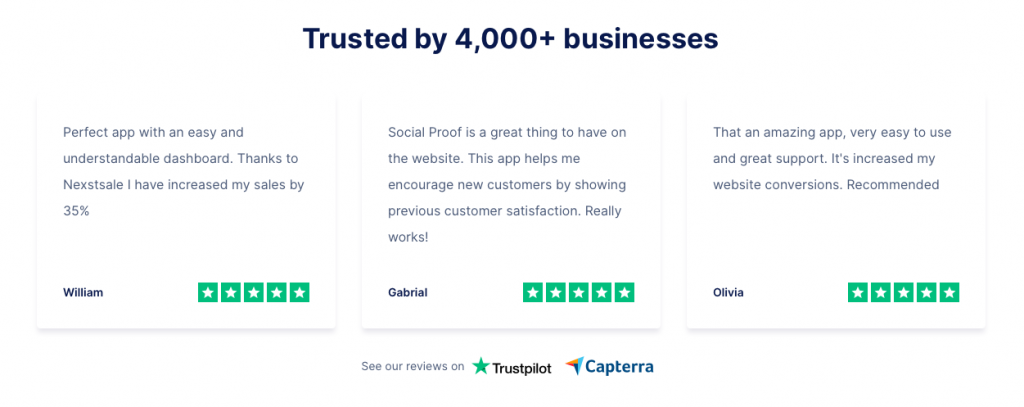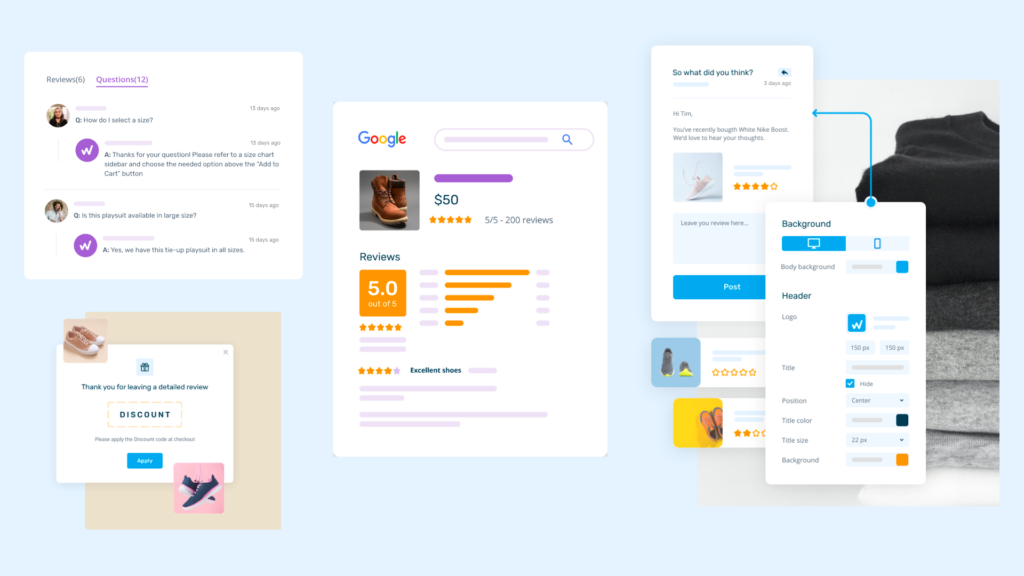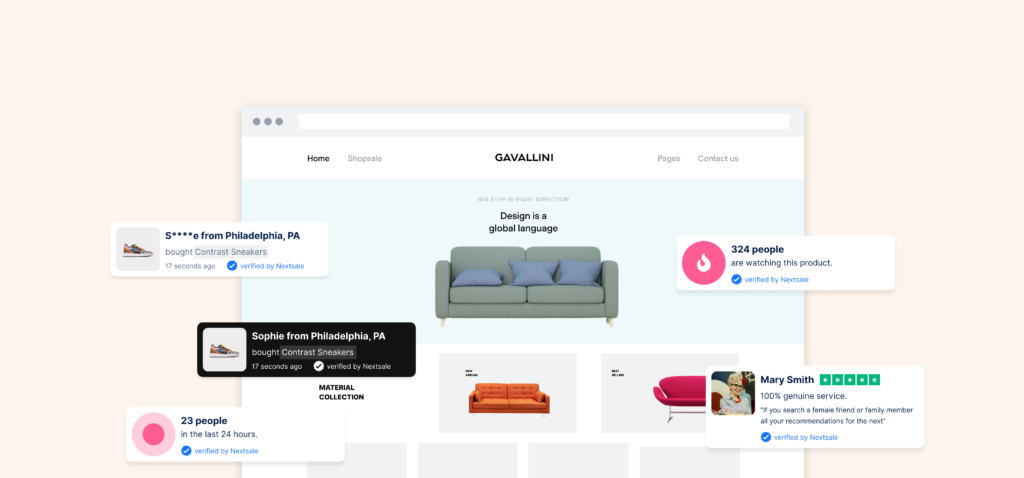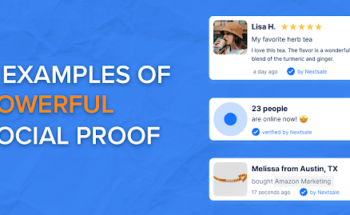
There are times I find myself eating meals at food spots that I have never been to. Because I see many people are in that place, I think that, well, “if the restaurant doesn’t offer good meals, then there wouldn’t be that many people.”
In social psychology, it is called conformity. In its simplest explanation, conformity occurs when a person wants to match the attitudes, beliefs, or behavior to fit the like-minded groups.
First coined by Robert Cialdini, social proof is one type of conformity. It’s copying others’ actions; when a person is unable to determine the right behavior in the given situation, he or she relies on knowledge of people surrounding them. It is the assumption that those people have a better knowledge of action in that situation.
There’s a cool article you can read to know everything about social proof.
How can you apply conformity – social proof to your electronic commerce business strategies to boost sales and conversions?
Stay tuned; I will share social proof examples to use in your marketing strategies.
Let’s get started.
Social Proof Examples: Reviews
Reviews are a conventional and common social proof method. When customers want to know the credibility of a brand, the first thing they do is look for the reviews. Either it’s a product or a brand itself, testimonials, and reviews – other people’s thoughts matter for building trust.
Brand reviews
Brand reviews are so essential to build, at the same risk to get because they can damage a business’s overall reputation. While a bad product review can cause a reduction in sales for that product, brand reviews can cause a dramatic loss of customers. Trustpilot is one of the famous platforms for submitting and finding consumer reviews. Each month consumers post about 1 million reviews about businesses around the globe. Make sure you get satisfactory reviews on the Trustpilot because it may be the first destination consumers will go to know more about your business. So, if you are confident enough about what you are doing in your business, feel free to create an account for free on Trustpilot. It is worthy to note that Trustpilot has stringent rules and restrictions about submitting reviews; thus, fake reviews are not accepted.

Product reviews
This is another example of social proof. Product reviews can cause a huge increase or decrease in further sales. You might ask, how to get product reviews on your store? There are different apps available on Shopify App Store that can gather reviews for your store in your sleep, but we want to highlight one app in particular.
Growave is an all-in-one marketing app for Shopify brands that offers reviews, loyalty, wishlist, and UGC under one roof. With the help of Growave, you can:
- Gather reviews from your customers and help you boost your social proof.
- Send automated review request emails to your shoppers and display them on your website.
If you are looking for an app with advanced features for an affordable price, then Growave is for you!

We all know that it is way too easy to post a fake review on your product. You can post hundreds of positive reviews on your product. However, I would advise you to avoid fake reviews to prevent destroying trust for two reasons. Firstly, fake comments can be detected if one pays attention to them. Thus it damages brand image. Secondly, the positive reviews you write for your products can look too good to be true. If customers catch you for fake comments, the best thing you wish for would be losing them. The angry customers can rate your brand on Trustpilot or other business review platforms complaining about fraud.
Experts
People tend to believe in experts – ones that are knowledgeable in the specific topic. For that reason, it is wise to invite experts to talk about your brand or a particular product to demonstrate social proof.
Social Media
There are dozens of social media tools to demonstrate social proof to your consumers. For instance, as Buffer suggests, you can invite or collaborate experts for an event on your social media to talk about your product and service, or conduct Q&A sessions, etc.
For more examples and tips, you can check out Buffer’s blog about the use of social media for social proof. They have done great work on offering the best social media management tools to help businesses improve brand image and increase engagement. Also, Buffer has invaluable resources on the use of social media as a part of marketing strategy.

Testimonials
Just saying that your product or service is excellent doesn’t work for consumers. They need to have evidence that other people have used and benefited from your product.
There are several ways to have testimonials to show social proof.
- Your customers
- Experts
- Brand partners
You can ask your loyal customers who have several purchases history on your data to provide positive information or their experiences. Or, it would be a great idea to offer discounts of promo codes to those who post testimonials.
Experts sharing their knowledge about your brand, product, and service is another way to demonstrate credibility. They would provide a data-driven analysis or real-life usage of your product. As an example, a credible fashion blogger can speak about the authenticity of your clothing brand, or famous lab-testers can unbox your gadget on their YouTube channels.
There are many ways to show an expert’s review. You can add experts’ insights on the testimonials section or on a separate page designed for it. Also, if it’s a YouTube review video for a particular product, it would be great if you add it to the product’s page.
Your brand partners can also share their impressions and involvement with your company. It would be great if they share the experience of how it’s like to have a partnership with you. For instance, how you create value for your product or service, or how you care about your customers and alike. All this information indicates that your brand is doing a great job and effort on the backstage as well.
Just make sure that you have corresponding pictures of the reviewers, their relation to your brand, and, if related, their profession.
You can add testimonial sections to your Shopify store with apps like Social Testimonial Slider and PageFly.
Social Testimonial Slider is a Shopify app that helps you to create high-converting testimonials sections. This app is a great tool to help you display your testimonials on your landing pages with different designs.
PageFly, is an excellent drag and drop page builder that lets you create, design, and optimize high-quality web pages that help easily and effortlessly convert your Shopify store visitors into customers.
Social Proof Notifications
What is good about these notifications is that they can always appear on any page. Visitors don’t have to lose time searching for the brand trust that keeps them from going to the checkout process. For this, you can fully trust, and put your eCommerce business into the hands of Nextsale to prevent card abandonment.

Nextsale social proof notifications show the following information to visitors:
- Activity popups
- Sales popups
Activity popups demonstrate how many people were recently online on the current page; simply, it shows the visitors count.
Similarly, sales popups show how many people have bought a particular product or service.
These popups mirror the wisdom of the crowd techniques that are widely used in marketing to increase sales. As I wrote above, psychologically, people tend to trust others sharing similar interests and tastes. People tend to trust the demonstrated numbers of sales and activities because they think that those buyers have more knowledge and experience. For this reason, Nextsale is a great deal to show brand trust for newcomers.
Display Numbers Associated With Your Business
Showing the number of customers, sold items, or depending on your product displaying the numbers that reached a certain amount which indicates the success of your business, is one great way to create social proof.
You can display how many people have purchased or used your product or service on the homepage of your website, product pages, and on the page that conversions happen.
Displaying the activity or dynamics of your store will have consumers think that if those products are getting sold, then these must be good and the store is reliable
Add Trust Badges to Gain Authentic View
Trust badges are seals or badges that are placed on the hero, navigation, or footer section of a website to indicate the trustworthiness of your products or services. Trust badges can be about secure payments, media notice, or marketplaces depending on your business type.
Accepted payment trust badges indicate that the payment-related data is securely stored in third-party services such as PayPal, Stripe, and others. The payment trust badges ease consumers’ skeptical minds and encourage them to complete the purchases by allowing your customers to shop with confidence. Payment badges are usually placed on the single product page near the add to cart button, on the footer, and checkout page.

Media notice or press mentions are another type of badge that indicates that your product or service is worth getting public attention. Adding these media mention badges tell the consumers that your brand has gained visibility.
In the following example, the artist Amira Rahim has placed her art’s media mentions that match with her online gallery on the homepage to create an authentic artist look:

We saw the power of social proof when it comes to brand credibility and sales. Take advantage of this psychological phenomenon and the plenty of apps available on the eCommerce platforms, and build brand credibility to increase conversions and gain customers’ trust.




